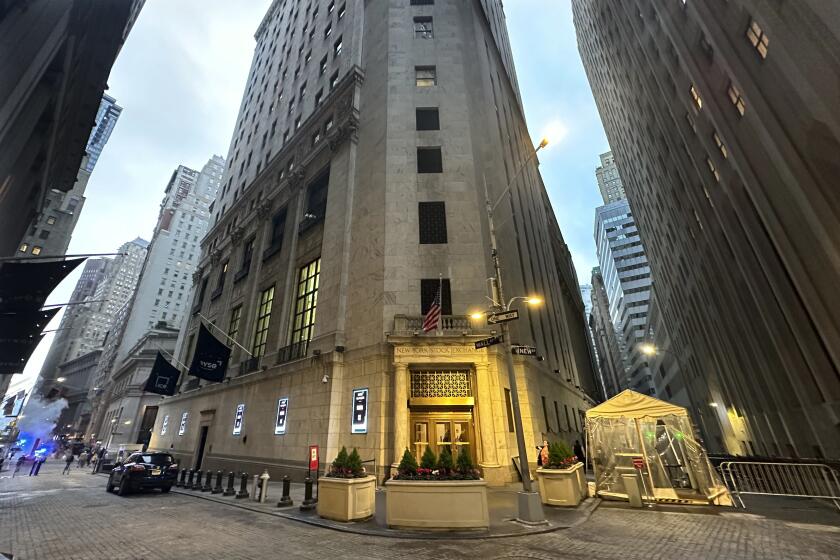Sen. Feinstein Opposes Myanmar Ban
Unocal Corp.’s campaign to keep the Clinton administration from imposing tougher economic sanctions on the heavy-handed military regime running Myanmar has a powerful supporter in Sen. Dianne Feinstein, the coauthor of a Myanmar sanctions law signed last year.
Feinstein, in a rare public statement on the issue, said Tuesday that reports of escalating violence and an alleged death threat against Nobel laureate Aung San Suu Kyi are not enough to trigger a ban on new U.S. investment, the toughest penalty included in the measure she coauthored last year with then-Sen. William Cohen (R-Maine).
“Right now, this is my personal judgment, I would say, ‘No,’ ” said Feinstein, who said she had consulted with Secretary of State Madeleine Albright and Defense Secretary Cohen before reaching that position.
The senior California senator did warn Myanmar’s aging generals, who wrested control of the country formerly known as Burma in 1988, that harming Suu Kyi would “surely precipitate these sanctions.” Suu Kyi’s opposition party won an election in 1989 but was not allowed to take power.
But she also acknowledged that she is not a fan of economic sanctions, except in rare instances such as South Africa under apartheid, because “the only ones that are hurt are the people who need help.”
Feinstein said she would would prefer to work with Myanmar’s Asian neighbors to have them exert “peer pressure” on the generals.
Feinstein’s comments pleased Unocal, which last week signed a production-sharing contract with state-owned Myanma Oil & Gas Enterprise to expand its operation in the controversial country. Unocal and its French partner paid the Myanmar government a $7-million signing bonus.
Unocal executives deny they rushed into this deal to avoid being caught by a U.S. sanction, pointing out that they were in talks for months.
John Rafuse, a Unocal executive based in Washington, said Wednesday that Myanmar’s struggling economy and its move toward democracy would benefit from more, not less, U.S. investment.
Feinstein’s assessment provoked anger from Myanmar critics, who argue that tougher sanctions are long overdue. But they pointed out that it will be President Clinton who will determine if Myanmar’s rulers have “physically harmed, rearrested for political acts or exiled” Aung San Suu Kyi or committed “large-scale repression” or violence against the democratic opposition.
“I’m sure he will be consulting many people on and off” Capitol Hill, said Mike Jendrzejczyk, director of the Washington office of Human Rights Watch/Asia.
A Clinton administration official said Wednesday that the issue was being reviewed “very seriously” to determine the “legal obligation and requirements the law imposes as well as what the law permits us.”
On Monday, Suu Kyi told reporters in Rangoon that there was “large-scale repression” going on. She also said a top Myanmar official had recently urged members of a pro-government group to kill her. Last fall, her car was attacked.
Since last fall, Suu Kyi, who has urged the U.S. to impose the ban, has reportedly been confined to her lakeside compound, which is surrounded by government troops.
An international campaign to isolate Myanmar is exacting a toll on the impoverished country. A number of U.S. firms have already pulled out of Myanmar in the face of consumer boycotts, shareholder resolutions and selective purchasing laws that prohibit city and state governments from doing business with companies operating in Myanmar.






